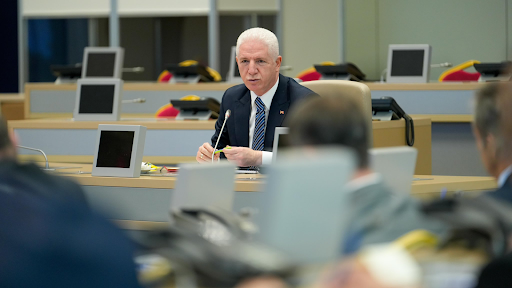The Justice and Development Party (AK Party)’s Keçiören Güçlükaya Neighborhood Organization brought together local residents, party members, and community leaders for a Ramadan iftar dinner, emphasizing solidarity and grassroots engagement in one of Ankara’s vibrant districts.
Strengthening Community Bonds Through Shared Values
Held at a local event hall in Keçiören, the gathering underscored the AK Party’s focus on fostering connections at the neighborhood level. Attendees broke their fast together, participated in evening prayers, and engaged in discussions on local issues, reflecting the party’s emphasis on unity during the holy month.
Neighborhood representatives highlighted the event’s role in addressing community needs, from infrastructure improvements to social welfare initiatives. “Ramadan is a time for compassion and togetherness. This iftar is not just a meal but a symbol of our commitment to walking side by side with our citizens,” said a local AK Party official during the event.
A Platform for Local Voices
The iftar also served as an informal forum for residents to voice concerns and share ideas directly with party organizers. Topics ranged from urban development projects in Güçlükaya to youth programs aimed at empowering the district’s younger population.
“Events like these remind us that politics begins at the grassroots. Listening to our neighbors’ stories fuels our work,” remarked a volunteer from the neighborhood teşkilat (organization).
Blending Tradition and Modern Outreach
The AK Party’s neighborhood-level iftar initiatives, a hallmark of its community engagement strategy, blend traditional Ramadan practices with modern political outreach. In Keçiören—a district known for its dynamic demographic mix—such gatherings aim to bridge generational and cultural gaps while reinforcing the party’s local presence.
Looking Ahead
As Ramadan continues, the Güçlükaya branch plans to organize additional charitable activities, including food distribution drives and visits to elderly residents. The iftar event, attendees noted, set a collaborative tone for ongoing efforts to address community challenges.
This small-scale yet symbolic gathering highlights the AK Party’s broader strategy of embedding itself within the social fabric of Turkey’s neighborhoods, using cultural and religious touchpoints to deepen ties with citizens.


















